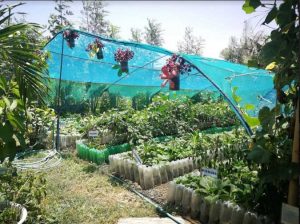THE Bureau of Plant Industry (BPI) said it may request more funding for its National Urban and Peri-Urban Agriculture Program.
In a briefing on Tuesday, BPI Director Glenn F. Panganiban said the program previously had no specific budget and previously sourced funds from the Department of Agriculture.
“But now isa na siyang ganap na programa at 2023 at ang kanilang budget na around P400 million (It is now a fully-fledged program in 2023 with a budget of around P400 million),” he said.
“Of course, as a national program medyo manipis ang budget na iyon considering ’yong importansya (The funding is not commensurate to its importance) but of course we have to prove ourselves,” he added.
Asked for what he considers an appropriate budget, he said a funding level of about P500 million will be sufficient to cover the entire country.
“Our focus of course is planting materials and other forms of production support. We will also (provide) production equipment and facilities like greenhouses,” he added.
On Tuesday, the BPI and Nestlè Philippines announced the partnership to promote urban agriculture with the goal of promoting food self-sufficiency.
In March, the BPI and Nestlé signed a memorandum of agreement for a three-year collaboration calling for the establishment of farms in urban locations.
Under the agreement, Nestlé’s MAGGI Sarap Sustansya Advocacy will produce and distribute learning materials on vegetable production and affordable plant-based recipes.
It will also provide starter kits containing planting essentials such as seed trays or basic implements, as well as compost and various vegetable seeds produced by the BPI.
The company runs a demonstration farm in Los Baños, Laguna.
“Nestlé Philippines believes in a collaborative approach to building communities, and we are proud to stand alongside the Department of Agriculture in inspiring a farm-to-fork movement among Filipino families and communities,” Nestlé Corporate Affairs Head Joey Uy said. — Sheldeen Joy Talavera

